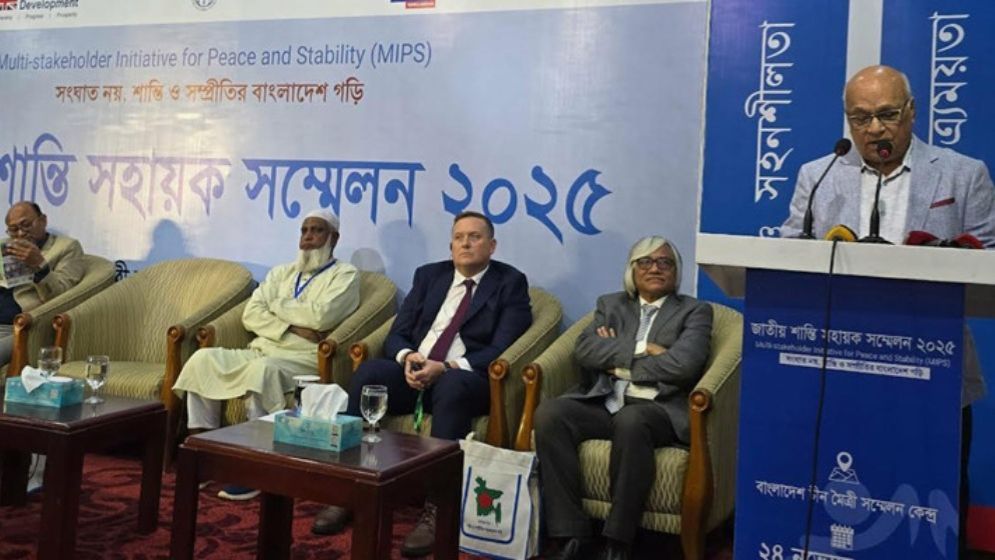Staff Correspondent
Published:2025-11-24 17:51:28 BdST
Hardest challenge in society or personal life is achieving peace: Disaster Adviser
Disaster Management and Relief Adviser Faruk-e-Azam has said that establishing peace—whether at the global, national, or personal level— is one of the hardest challenges.
Peace is never achieved in a single day; it is a continuous process that develops through actions and values at every level, from individuals and families to society, the state, and the global system, he also said.
Addressing the National Peace Facilitators’ Conference 2025 at the Bangladesh-China Friendship Conference Center in Agargaon of the capital Dhaka on Monday (24 November), the adviser said that genuine and lasting peace can emerge only in societies where justice, humanity, empathy and responsibility are upheld—not merely preached.
The conference theme, “Let us build a Bangladesh of peace and harmony, not conflict,” he said, reflects an urgent national need rather than an abstract ideal.
The event, organised by The Hunger Project Bangladesh, brought together more than 300 Peace Facilitator Group members from across the country.
Faruk-e-Azam said The Hunger Project’s “Peace Facilitator” initiative was timely, pointing to rising intolerance, tension, and public frustration.
He cited the July 2024 student-led mass uprising as a stark reminder that unresolved injustice, inequality, and lack of accountability inevitably erupt.
“Peace may be our goal, but the road to it forces us to confront harsh realities,” he said, stressing that justice, accountability, equality and humanity must be strengthened if Bangladesh is to avoid repeated cycles of unrest.
He argued that institutionalising peace demands active participation from every sphere—families, political parties, educational institutions, local government, religious bodies and the media.
Peace, he said, cannot be imposed by policy alone; it must be rooted in people’s values and everyday actions. “Every citizen has the power—and the duty—to become a pillar of peace.”
Addressing grassroots volunteers, he praised their often-unnoticed work, saying their persistence can reinforce stability, understanding and compassion at the community level. If peace-oriented values can be firmly embedded across society, he added, Bangladesh will move toward a more secure, stable and humane future.
The programme was chaired by Sheikh Md Mokbul Hossain, Peace Ambassador of the Paba Upazila Peace Facilitator Group in Rajshahi. Shujan Secretary Dr Badiul Alam Majumdar, NGO Affairs Bureau Director General Md Daud Mia, researcher and former Dhaka University professor Dr Meghna Guhathakurta, and British High Commission Political Counselor Timothy Duckett also addressed the event.
Unauthorized use or reproduction of The Finance Today content for commercial purposes is strictly prohibited.


